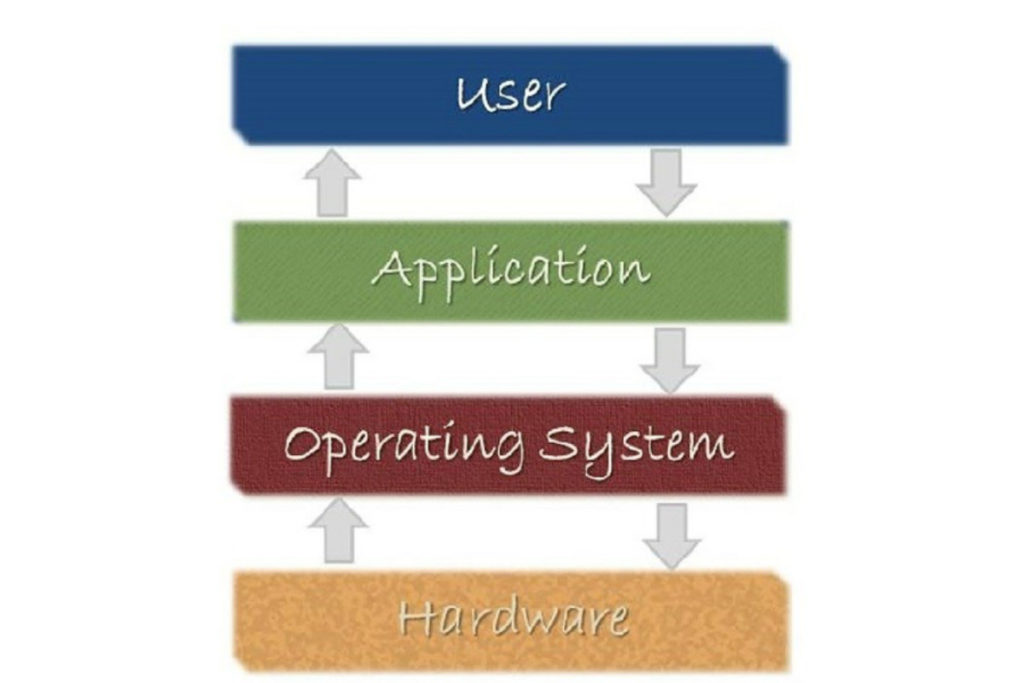As technology continues to advance at an unprecedented rate, businesses around the world are integrating various IT applications into their operations to streamline their processes and increase efficiency. From customer relationship management (CRM) systems to enterprise resource planning (ERP) software, the possibilities for implementing IT applications in businesses are endless.
One of the most basic IT applications for businesses is email. Email has revolutionized the way businesses communicate with customers and other stakeholders. Instead of relying on traditional methods of communication such as phone calls and letters, businesses can now send and receive emails instantly, making communication faster, more efficient and reduce cost as well.
In addition to E-Mail, the following applications can also be used to increase the effectiveness of the business.
Accounting Software
One of the most basic IT applications that businesses need is accounting software. This software helps businesses keep track of their financial transactions, including income, expenses, and taxes. With the help of accounting software, businesses can generate financial reports, manage their cash flow, and stay compliant with tax laws.
There are many different accounting software options available, ranging from simple and affordable to complex and expensive. Some popular accounting software options include QuickBooks, Xero, and Wave.
Customer Relationship Management (CRM) Software
Another essential IT application for businesses is CRM software. This software helps businesses manage their customer interactions and keep track of customer information. With the help of CRM software, businesses can store customer contact information, track customer interactions, and analyze customer behavior.
CRM software also helps businesses streamline their sales processes and manage their marketing campaigns. Some popular CRM software options include Salesforce, HubSpot, and Zoho CRM.
Inventory Management Software
For businesses that deal with physical products, inventory management software is a must-have IT application. This software helps businesses keep track of their inventory levels, monitor sales trends, and automate their reordering processes.
With the help of inventory management software, businesses can avoid stockouts and overstocking, optimize their inventory levels, and reduce their carrying costs. Some popular inventory management software options include Fishbowl, Cin7, and TradeGecko.
Project Management Software
Project management software is another basic IT application that businesses can use to streamline their operations. This software helps businesses plan, track, and execute their projects more efficiently. With the help of project management software, businesses can assign tasks, set deadlines, monitor progress, and collaborate with team members.
Project management software also helps businesses prioritize their projects and resources, reduce their project timelines, and increase their project success rates. Some popular project management software options include Asana, Trello, and Basecamp.
Communication Software
Effective communication is key to the success of any business. Communication software helps businesses stay connected with their employees, customers, and partners via calls, emails, and video conferences etc from all over the world.
Communication software also helps businesses improve their customer service and collaboration efforts. Some popular communication software options include Zoom, Slack, and Microsoft Teams.
Human Resources (HR) Software
For businesses with employees, HR software is a basic IT application that can help streamline their HR processes. This software helps businesses manage their employee information, track their time and attendance, and automate their payroll processes.
With the help of HR software, businesses can reduce their HR administrative tasks, improve their compliance efforts, and increase their employee satisfaction. Some popular HR software options include Gusto, BambooHR, and Paychex.
E-commerce Software
E-commerce software is a basic IT application that businesses can use to sell their products and services online. This software helps businesses create and manage their online stores, process payments, and ship their products to customers.
With the help of e-commerce software, businesses can expand their reach and increase their sales. Some popular e-commerce software options include Shopify, WooCommerce, and BigCommerce.
Marketing Automation Software
Marketing automation software is a basic IT application that businesses can use to automate their marketing processes. This software helps businesses send targeted emails, create landing pages, and track their marketing campaigns.
With the help of marketing automation software, businesses can save time and money.
Social Media
Social media is a powerful tool that businesses can use to connect with their customers and promote their products and services. Social media allows businesses to engage with their customers, build relationships, and increase brand awareness.
Social media can also be used for customer support. Businesses can use social media to respond to customer inquiries and resolve issues quickly. Social media can also be used to gather feedback from customers, which can help businesses improve their products and services.
Cloud Computing
Cloud computing is a technology that allows businesses to store and access data and applications over the Internet. Cloud computing can help businesses save money on hardware and software costs. It can also improve collaboration between employees, as team members can access data and applications from anywhere with an internet connection.
Cloud computing can also improve data security. By storing data in the cloud, businesses can protect their data from physical damage, theft, and other risks.
Website
A website is an essential tool for businesses that want to establish an online presence. A website can be used to promote products and services, provide information to customers, and facilitate online sales.
A website can also be used for customer support. Businesses can use their website to provide customers with information about their products and services, as well as to answer frequently asked questions.
In conclusion, basic IT applications such as email, websites, inventory management software, CRM systems, and ERP software have become essential tools for businesses of all sizes. By implementing these applications, businesses can improve their operations, increase efficiency, and provide better customer experiences, ultimately leading to increased revenue and growth. As technology continues to advance, businesses need to stay up to date with the latest IT applications to remain competitive in today’s digital landscape.
This content was facilitated by CeFEnI/COSME and prepared by the University of Sri Jayawardenapura, Kotte
